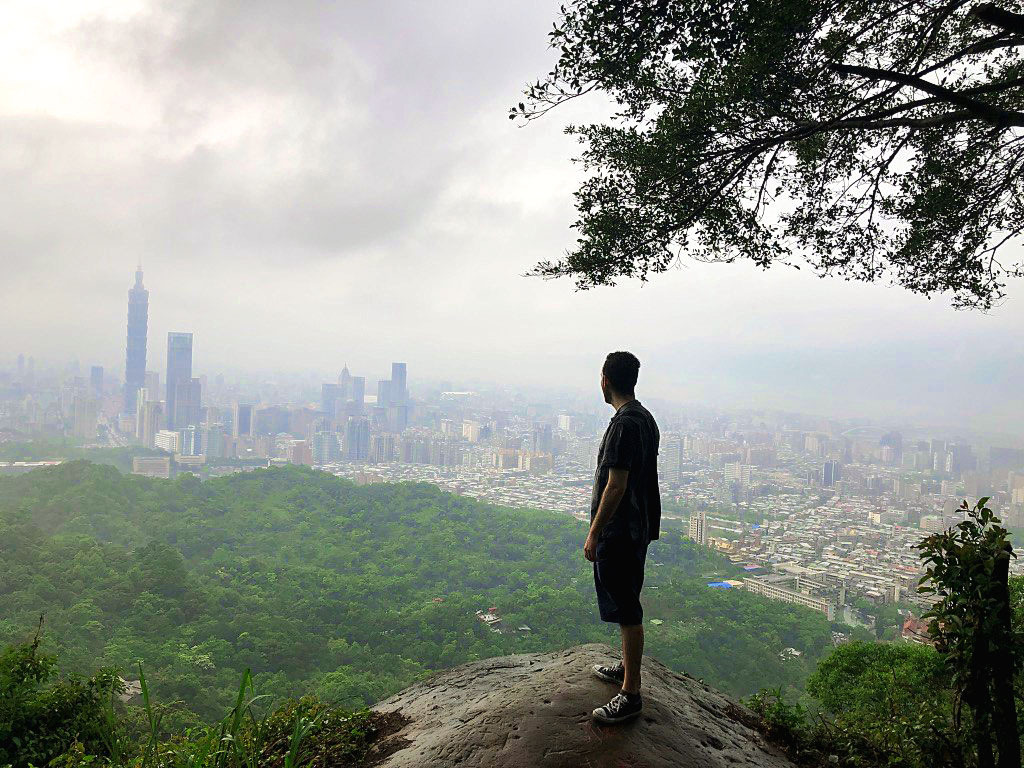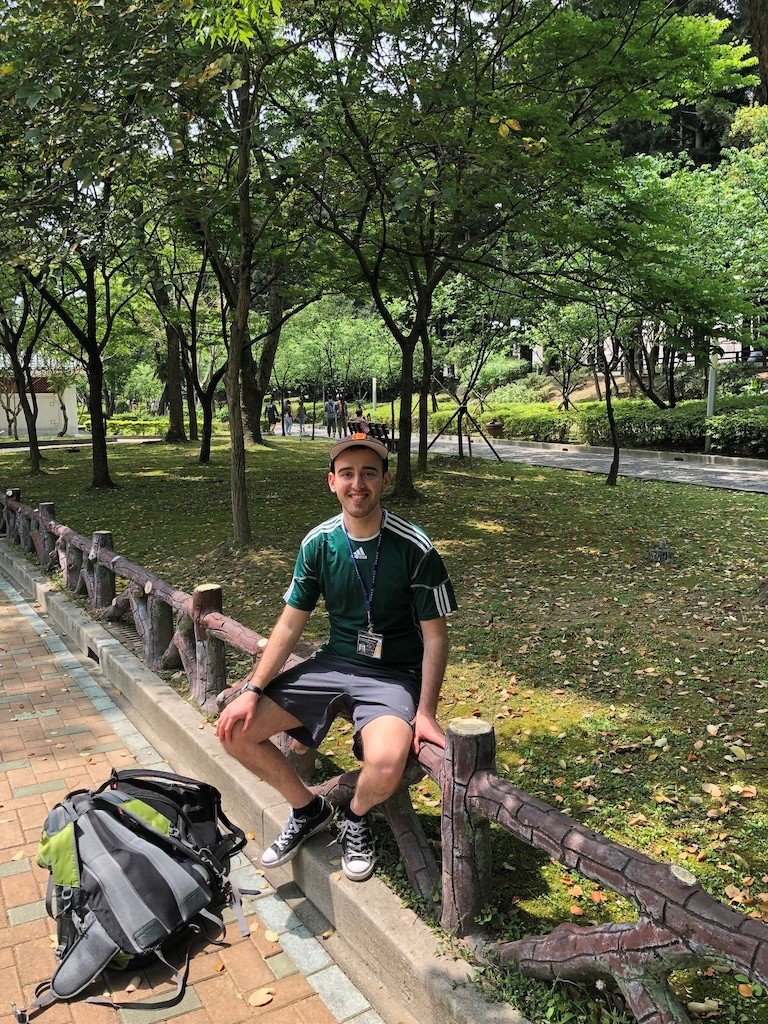Hello, my name is Daniel Oliveira! I studied and conducted pharmaceutical research abroad at Academia Sinica during the spring quarter of 2018 in Taipei, Taiwan.

One person I met through this trip, and who will remain a lifelong friend, is Girish. I met him through a lunch group which became a part of my regular routine as an exchange student. Meeting Girish was made possible through my PhD chemistry supervisor, Tushar Jadhav, who one day invited me to walk with him across a busy intersection in the Nangang District of Taipei into a small Indian restaurant that only fit about 3 tables. After ordering our lunch boxes that day, Tushar and I commenced our journey up onto the 5th floor of the Agricultural Technology Building where we met a group of about 5 international students. They all became my friends, and we met daily to share meals.
In a small 75 square-foot room, it was interesting to sit as the only westerner hearing a mix of Hindi and English – the Hinglish portmanteau. At that time, Girish stood out to me. He was courteous to show me around the city and talk about academic life as a PhD student. Girish completed his undergraduate and master’s degree in India and chose to enroll in Taiwan’s International Graduate Program – a program that recruits international students to receive stipends and conduct research at Academia Sinica. He allowed me to understand more about different career paths that interested me.
It was important for me to know him because Girish continues to stay in touch with me and offer support not just in the area of schooling and work, but also in life. What I learned during those weekday lunches with the international brothers was that Indian culture really values friendship and work-life balance. In a way, I had much in common with them, and that’s because I also grew up in a multicultural community as the son of Brazilian immigrants.
Therefore, I drew parallels between Indians and Brazilians: they used Hinglish, and we used Portenglish (or Spantuguese when conversing with our Hispanic friends); they valued interpersonal interactions, and we placed importance on family and friends; they embraced elements of nature (being that India is diverse in geography and climate), and we constantly kept in mind the shared memories of diving into the hot springs at Caldas Novas in the state of Goiás.
Girish also informed me that some of the guys were surprised that I had superseded their misconceptions regarding Americans. Reflecting on this, I now recognize that studying abroad allowed me to add to my perspective. I do love the U.S., and I am proud of living in a country that prides itself in working for the things that matter to you. But being exposed to eastern life showed me that sometimes non-Americans think we may focus too much on our guns, too much on our supersized fast-food meals, and too much on market competition.

Now, I mention these small details not to be political. I merely propose that we be cognizant of how we are similar, and different, than others. And by meeting Girish, sitting in that tension of shared life experiences but also disparate paradigms on life allowed me to learn a lot! For that I am grateful.
As someone who tried to find a group to fit in growing up, going forward I plan on staying in contact with those connections made in Taiwan. It’s a plan to cherish the past and plan for the future. The Gilman scholarship was an avenue for me to leave my comfort zone and establish relationships based off of mutual interests.
Has this happened to you? If so, I encourage you to continue to benefit from intercultural experiences by recognizing the lasting impacts shared connections can have.



